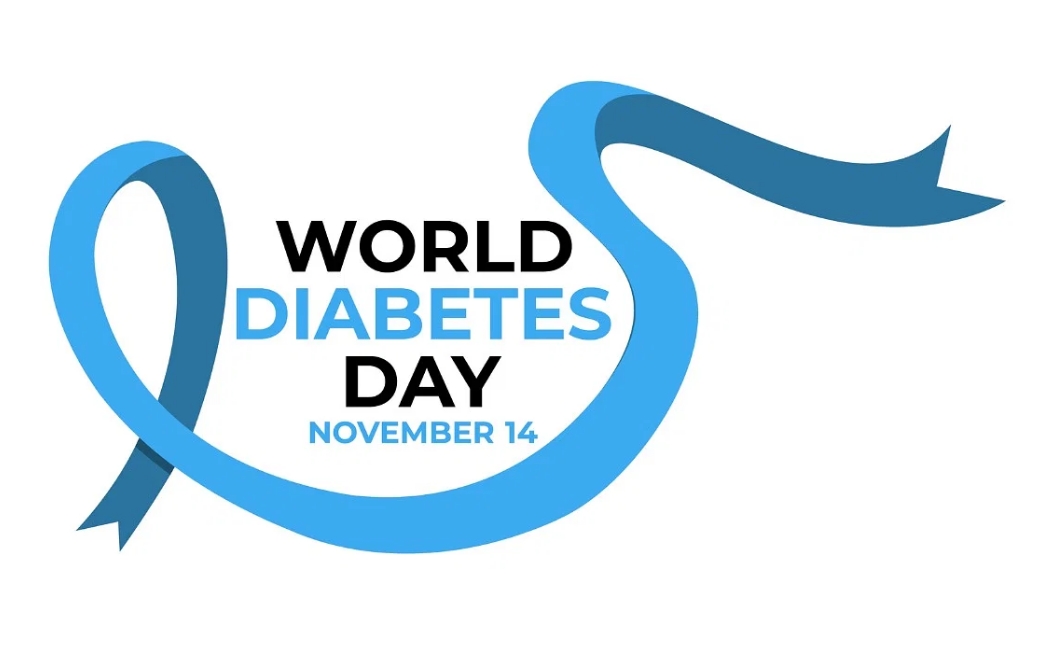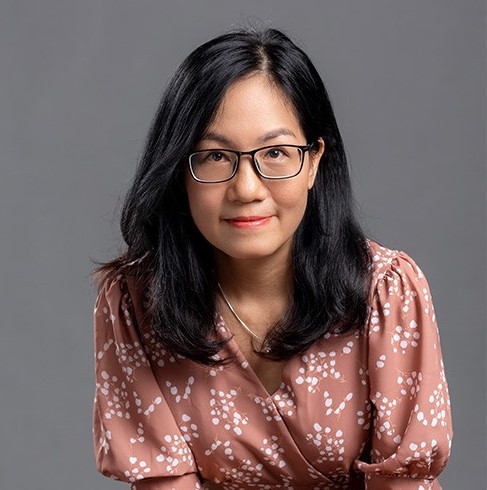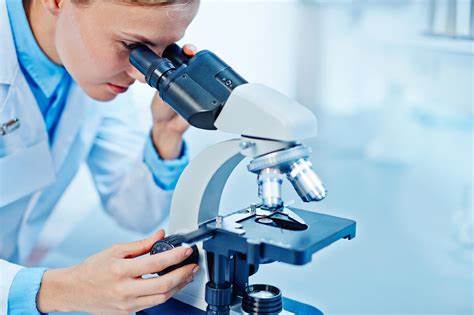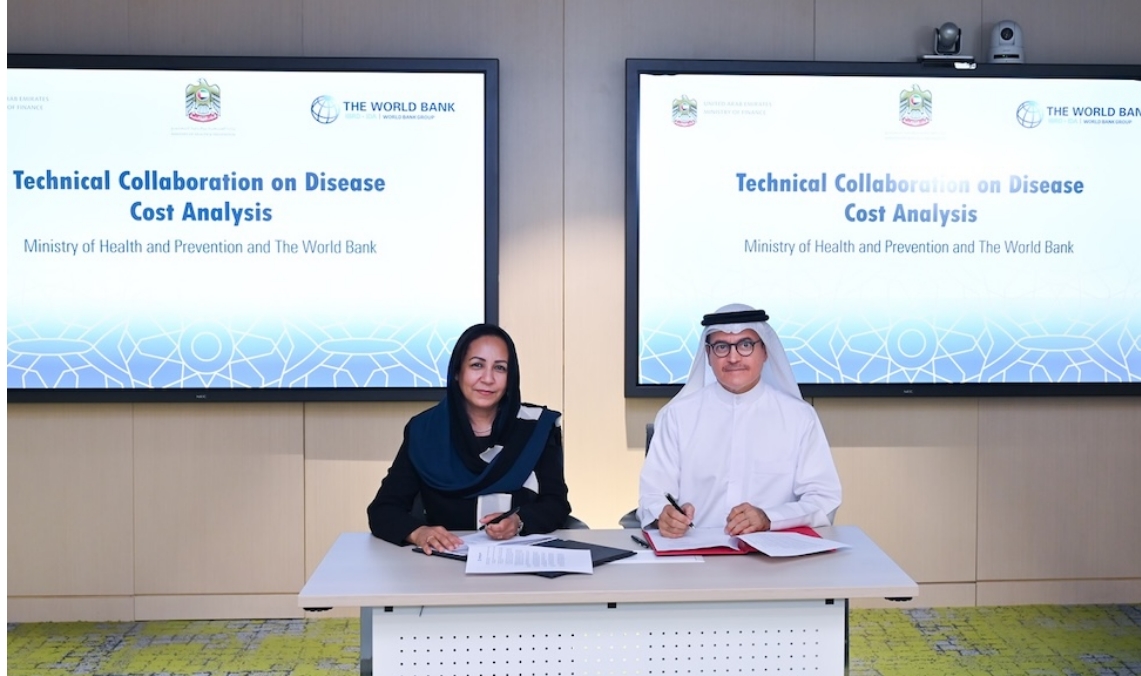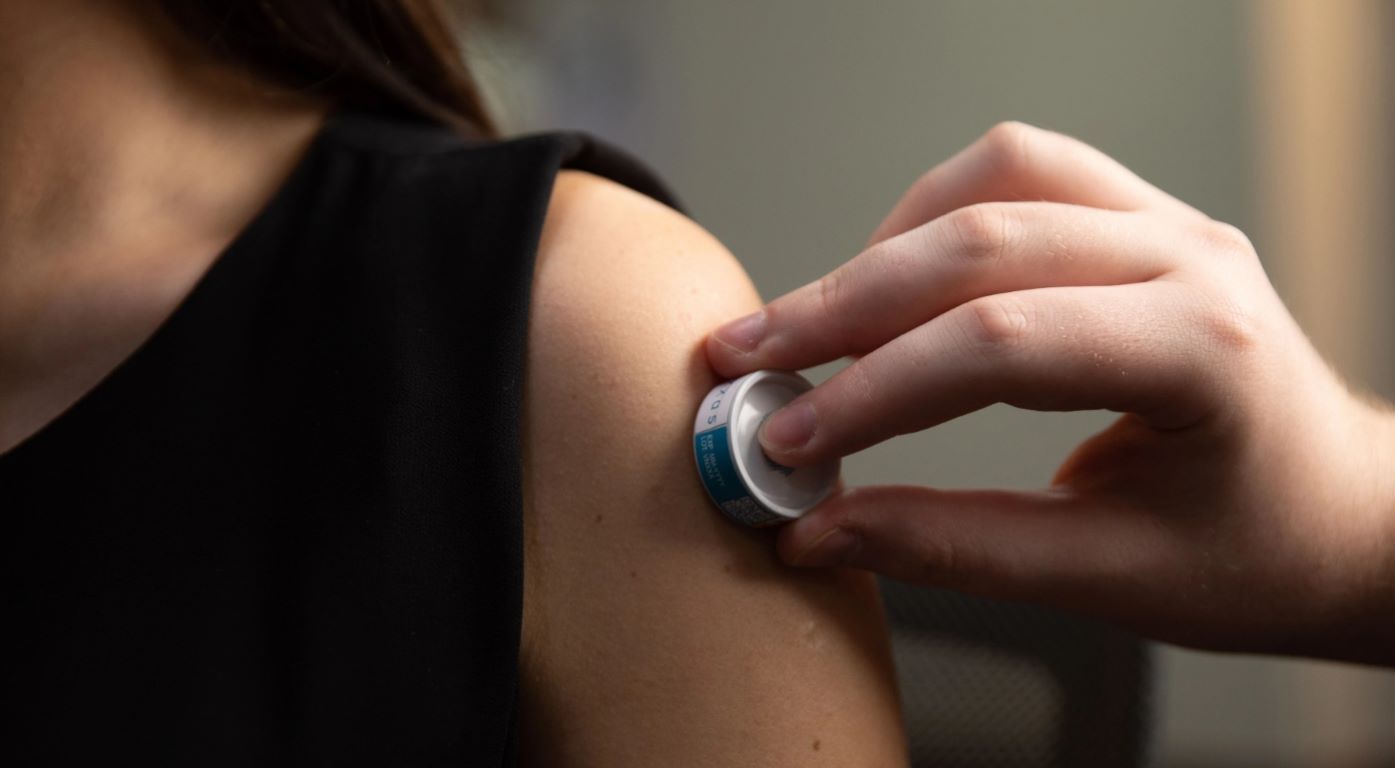NHRI and Singapore's KK Women's and Children's Hospital sign MoU to promote precision care for rare diseases
17 February 2023 | News
Experts from Taiwan, Japan, Singapore and the United States met to strengthen collaboration in precision medicine
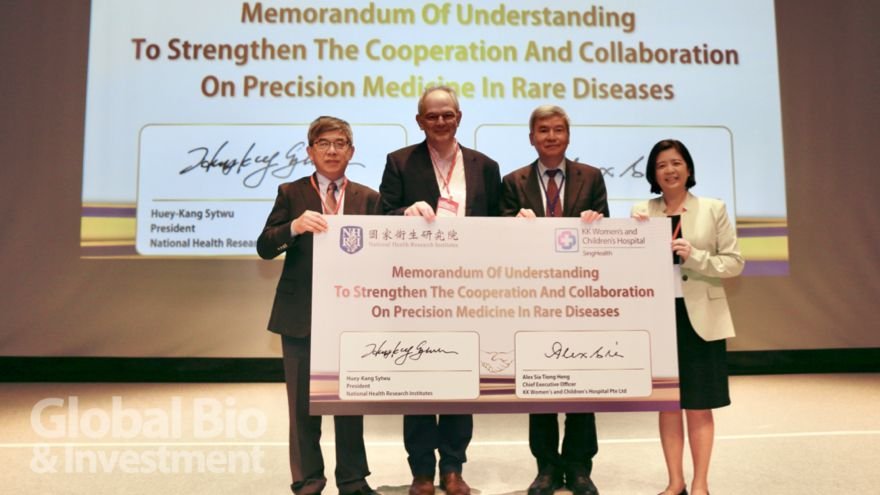
From Left to Right: NHRI distinguished investigator Shih-Feng Tsai, John Chambers, Huey-Kang Sytwu, Ee-Shien Tan (Photos provided by NHRI) Photos provided by Yvonne Lo, Globalbio
On February 15, the National Health Research Institutes (NHRI) announced the signing of a memorandum of understanding (MoU) for precision medicine collaboration with Singapore's KK Women's and Children's Hospital. The two parties will collaborate in three areas: whole-genome sequencing (WGS) clinical services and translational research for rare diseases, as well as biotechnology development. John Chambers, the scientific director of Precision Health Research Singapore (PRECISE) and head of the SG100K research program, introduced the key role that PRECISE plays in Singapore's ten-year Precision Health Transformation Plan, the National Precision Medicine Plan (NPM), after the signing ceremony.
The newly appointed NHRI director, Huey-Kang Sytwu, said that over the past decade, the Ministry of Health and Welfare (MoHW) has constructed a comprehensive cancer prevention and treatment platform, while NHRI has established a national-level human biobank platform and several precision health programmes. Through expanding collaborations, NHRI is fully committed to precision health. NHRI special research fellow Shih-Feng Tsai explained that the MoU with Singapore has three major areas of cooperation: clinical services, translational research, and biotechnology development.
In terms of clinical services, the two sides will further collect rare disease genome-related data through WGS. In terms of translational research, they will integrate big data needed for genomic research, with a particular focus on Chinese genetic characteristics. They also hope to jointly promote the participation of genetic disease patients in global clinical trials and identify research targets for functional genomics studies. NHRI and KK Women's and Children's Hospital hope to develop fee-for-service and DNA diagnosis models for biotechnology development, and then further research precision medicine-related products and services.
NHRI distinguished investigator Shih-Feng Tsai also revealed that the collaboration originated from Francis Liang, Taiwan's representative to Singapore, who introduced a narrow esophagus patient from Singapore for treatment in Taiwan with good results, which sparked the idea of clinical medical cooperation between the two countries. Tsai said that Taiwan and Singapore have the advantages of being geographically close and sharing a common language. Through this collaboration, they hope that future international cooperation in precision medicine in Taiwan will be more integrated and systematic.
Ee-Shien Tan, the director of the Pediatric Genetics Service at KK Women's and Children's Hospital in Singapore, said that their hospital has made significant advances in genomic research.
The newly appointed NHRI director, Huey-Kang Sytwu, said that over the past decade, the Ministry of Health and Welfare (MoHW) has constructed a comprehensive cancer prevention and treatment platform, while NHRI has established a national-level human biobank platform and several precision health programmes. Through expanding collaborations, NHRI is fully committed to precision health. NHRI special research fellow Shih-Feng Tsai explained that the MoU with Singapore has three major areas of cooperation: clinical services, translational research, and biotechnology development.
In terms of clinical services, the two sides will further collect rare disease genome-related data through WGS. In terms of translational research, they will integrate big data needed for genomic research, with a particular focus on Chinese genetic characteristics. They also hope to jointly promote the participation of genetic disease patients in global clinical trials and identify research targets for functional genomics studies. NHRI and KK Women's and Children's Hospital hope to develop fee-for-service and DNA diagnosis models for biotechnology development, and then further research precision medicine-related products and services.
NHRI distinguished investigator Shih-Feng Tsai also revealed that the collaboration originated from Francis Liang, Taiwan's representative to Singapore, who introduced a narrow esophagus patient from Singapore for treatment in Taiwan with good results, which sparked the idea of clinical medical cooperation between the two countries. Tsai said that Taiwan and Singapore have the advantages of being geographically close and sharing a common language. Through this collaboration, they hope that future international cooperation in precision medicine in Taiwan will be more integrated and systematic.
Ee-Shien Tan, the director of the Pediatric Genetics Service at KK Women's and Children's Hospital in Singapore, said that their hospital has made significant advances in genomic research.


